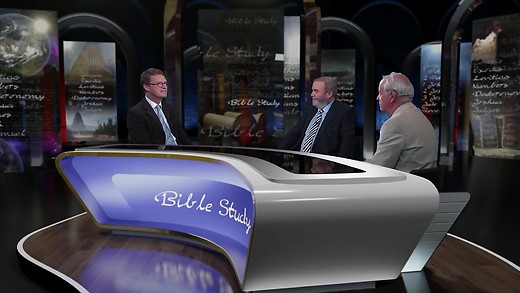

PSALM 27 (part 2): Waiting on the Lord (Psalm 27:6-14)
Ps 27 continues with David concluding his confident declaration of faith (v1-6), saying: “And now my head shall be lifted up (in honour) above my enemies all around me” (v6a). God will exalt him to be king (v5). If we exalt Him in worship, He’ll exalt us. Time in worship gives us confidence in God's protection & hope for the future. He sees beyond the present to God’s victory, when he’ll praise God with His people, thanking Him for manifested victory: “Therefore, I will offer sacrifices of joy in His Tabernacle; I will sing, yes, I will sing praises to the Lord” (v6b). God gave him victory over the immediate threat (v1-6), but he had to endure a hardness for 8 years, in constant danger & need for His help, so now he moves to humble entreaty for ongoing favour & deliverance (v7-12). Knowing himself as weak & sinful, dependent on God, he doesn’t presume on His blessing, but urgently asks for continuing mercy & grace. v7: “Hear, O Lord, when I cry with my voice! Have mercy also on me, and answer me” (v7). Due to the wait time between promise & fulfilment, he battles negative thoughts of fear & condemnation. But as a worshipper (v4-6), rather than giving into fears, he gives them to God in prayer (v7-12) & comes into assurance (v13).
“When You said: “SEEK My FACE (Presence)!” My HEART said to You: “Your FACE (Presence), Lord, I WILL SEEK” (v8). He reminds God, He initiated this relationship by inviting him to seek Him. This is God’s command to all, for the first ‘seek’ is plural. He graciously invites all to seek & find Him, to know Him personally. True prayer is our response to His gracious initiative. He reminds God he did respond by setting his will (heart) to seek & know Him. So, he was sure he’d find Him, for God reveals Himself & blesses all who seek Him (Deut 4:29, Jer 29:13, Matt 7:7). Those who don’t find God have not set their heart to seek to know Him. Saying: “I WILL seek” shows intentionality. He was a man (who sought) after God’s heart (v4, 1Sam 13:14, Acts 13:22). We need to pay attention to God, if we want Him to pay attention to us (hear our prayers). He realises he’s not perfect & deserves condemnation, so has to deal with negative accusing thoughts, which he does in prayer: “Do not hide Your FACE from me, do not turn Your servant away in anger” (v9a). When His face shines on us, He’s gracious toward us, but if He hides His face, He’s displeased, and we need to confess our sin & turn back to Him. “You have been my help (in the past, so); do not leave (abandon) me (now) nor forsake me (in my time of need), O God of my salvation” (v9b). In his weakness, he abandons himself to God, expressing total dependence on Him. This is how to handle inner fears - bring them to God. When you sin don’t run from God, but to God. He’s the God of your salvation. Despite our failings, if we seek Him (v8), He’ll not hide His face from us (v9). He knew God as His Saviour (v9) & perfect Parent: “When (even if) my father and my mother forsake me, then the
“When You said: “SEEK My FACE (Presence)!” My HEART said to You: “Your FACE (Presence), Lord, I WILL SEEK” (v8). He reminds God, He initiated this relationship by inviting him to seek Him. This is God’s command to all, for the first ‘seek’ is plural. He graciously invites all to seek & find Him, to know Him personally. True prayer is our response to His gracious initiative. He reminds God he did respond by setting his will (heart) to seek & know Him. So, he was sure he’d find Him, for God reveals Himself & blesses all who seek Him (Deut 4:29, Jer 29:13, Matt 7:7). Those who don’t find God have not set their heart to seek to know Him. Saying: “I WILL seek” shows intentionality. He was a man (who sought) after God’s heart (v4, 1Sam 13:14, Acts 13:22). We need to pay attention to God, if we want Him to pay attention to us (hear our prayers). He realises he’s not perfect & deserves condemnation, so has to deal with negative accusing thoughts, which he does in prayer: “Do not hide Your FACE from me, do not turn Your servant away in anger” (v9a). When His face shines on us, He’s gracious toward us, but if He hides His face, He’s displeased, and we need to confess our sin & turn back to Him. “You have been my help (in the past, so); do not leave (abandon) me (now) nor forsake me (in my time of need), O God of my salvation” (v9b). In his weakness, he abandons himself to God, expressing total dependence on Him. This is how to handle inner fears - bring them to God. When you sin don’t run from God, but to God. He’s the God of your salvation. Despite our failings, if we seek Him (v8), He’ll not hide His face from us (v9). He knew God as His Saviour (v9) & perfect Parent: “When (even if) my father and my mother forsake me, then the
Activity